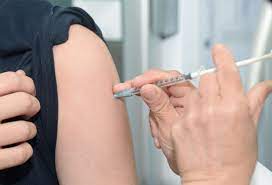Many people are deficient in vitamin D. Here are some of the most common reasons why:
Inadequate sun exposure
Getting 10-30 minutes of midday sun exposure can allow our skin to generate sufficient vitamin D. However, those who live farther from the equator, work indoors or use sunblock routinely may not get enough sun exposure for adequate production.
Inadequate dietary intake
Very few foods naturally contain vitamin D. While some foods like milk and cereal are fortified with vitamin D, dietary intake is often insufficient, especially for those avoiding dairy.
Malabsorption issues
Certain gastrointestinal disorders like celiac, Crohn’s and cystic fibrosis can hinder vitamin D absorption. Weight loss surgeries and medications can also contribute to malabsorption.
Obesity
Those with a BMI over 30 have a harder time utilizing vitamin D efficiently and are at high risk of deficiency.
Symptoms and Health Risks of Vitamin D Deficiency
Without adequate vitamin D status, you may experience the following symptoms and conditions:
Weak bones and muscles
One of vitamin D’s most important roles is maintaining calcium levels for bone mineralization and density. Deficiency can lead to soft, thin bones that are prone to fracture and breakage. Muscle weakness is also a common symptom.
Depression
Research shows a strong link between depressive disorders and low vitamin D levels. Supplementing with vitamin D may help boost mood and relieve sadness.
Impaired wound healing
Vitamin D stimulates production of compounds involved in wound repair. Deficiency can delay healing.
Increased risk of infection
Vitamin D plays an important immunomodulatory role. Those deficient are at greater risk for infections like influenza, pneumonia and tuberculosis.
Fatigue and tiredness
Without adequate vitamin D, you may experience persistent fatigue, tiredness and low energy levels even with proper rest.
Benefits of Vitamin D Injections
Given how common deficiency is, vitamin D supplementation is important for many people. Vitamin D injections provide a fast-acting and long-lasting boost:
Boosts immunity
Vitamin D injections can quickly restore levels to optimize immune defenses against viruses, bacteria and other pathogens.
Strengthens bones
Injectable vitamin D bypasses GI absorption issues to efficiently build bone density and prevent osteopenia and osteoporosis.
Improves mood
Research shows vitamin D supplementation can reduce symptoms of depression, seasonal affective disorder and other mood issues.
Promotes weight loss
Adequate vitamin D levels are linked to easier fat loss. Deficiency is associated with obesity. Injections can support a healthy metabolism.
Reduces inflammation
Vitamin D modulates inflammatory pathways. Supplementation can lower chronic inflammation linked to autoimmunity, heart disease, diabetes and cancer.
Who Can Benefit from Vitamin D Injections?
Here are some individuals who may reap benefits from vitamin D injections:
People with gastrointestinal disorders
Those with celiac, IBS, Crohn’s disease or cystic fibrosis often have trouble absorbing fat-soluble vitamins like D. Injections bypass the GI tract.
Vegans and vegetarians
Plant-based diets are naturally low in vitamin D. Injections can efficiently correct deficiency without adding dietary animal products.
Office workers
Those working desk jobs often miss out on sufficient sun exposure. Injectable D can mimic what our skin would normally produce.
Elderly individuals
As we age, our skin becomes less efficient at producing vitamin D. Injections are an effective way to maintain adequate levels.
Overweight or obese individuals
Those with higher BMIs often require 2-3 times more D supplementation due to sequestration in body fat and utilization issues.
How Often Should You Get Vitamin D Injections?
Most doctors recommend vitamin D injection 1-2 times per month to start. Maintenance injections every 2-3 months are typically adequate once levels are replete. Those with severe deficiency may require more frequent loading doses. Testing blood levels every 3-6 months allows proper monitoring and dosage adjustments.
Are Vitamin D Injections Safe?
Vitamin D injections are very safe when administered properly under medical supervision. Like other fat-soluble vitamins, there is risk of toxicity if levels become extremely elevated. However, this is very rare with appropriate monitoring. Those with common health conditions can safely correct deficiency with injectable D.
Takeaway on Vitamin D Injections and Health
Vitamin D deficiency is incredibly prevalent, putting millions at risk for weak immunity, bone loss, depression and chronic disease. Correcting deficiency safely and efficiently is crucial. Vitamin D injections bypass absorption issues to quickly boost blood levels and provide lasting benefits. Getting your levels tested and discussing injections with your doctor is a smart proactive step for your overall health and wellbeing.
Conclusion
Optimizing vitamin D levels with UV exposure, food sources and supplementation is key for staying strong and healthy. Given widespread deficiency, injections are an effective option under medical guidance. If you experience symptoms like frequent illness, bone/muscle weakness or low mood, ask your doctor about testing your vitamin D levels and whether injectable repletion could help restore wellness.
FAQs
How much does a vitamin D injection cost?
Expect to pay $20-60 per injection. Some doctors include the cost in office visit fees. Most insurance plans don’t cover injectable D yet.
When is the best time to get vitamin D injections?
Most doctors recommend fall through early spring when sun exposure is lower. Those with chronic deficiency may benefit year-round.
Do vitamin D injections hurt?
Most report injections as relatively painless, similar to other shots. Pain is typically minimal by using small needles into fatty areas like the buttocks.
How long do the effects of a vitamin D injection last?
A typical vitamin D injection of 10,000-50,000 IU lasts in your system for 3-6 months. Levels should be rechecked and additional injections given based on bloodwork.
Are vitamin D injections safe during pregnancy?
Yes, maintaining adequate vitamin D in pregnancy is very important. Always discuss injections with your OB-GYN first.

